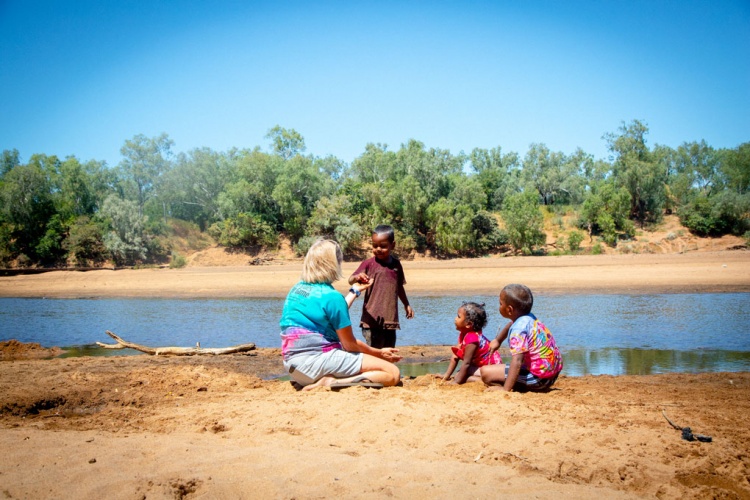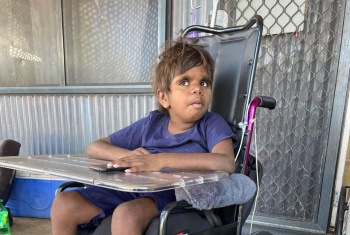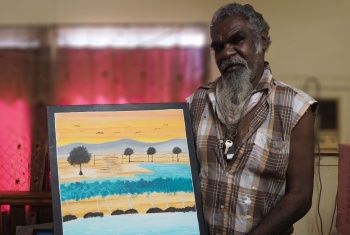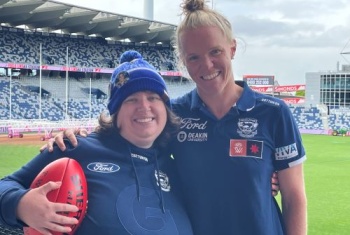In the vast, remote lands that occupy the northern most part of Western Australia, a group of Indigenous women are helping other local women to support their children through a unique NDIS program.
The program launched early last year, helping to connect families to NDIS and community supports for young children who live with disability or developmental delay.
Kimberley Aboriginal Medical Services (KAMS) estimates the program has helped more than 150 families across the Kimberley.
And the women say they are seeing great results.
“We have seen really positive changes in the child’s speech development, where they are going to school and getting the support they need, where mothers are spending more time reading with their children,” said Mirella Bin Swani, who works with the Derby Aboriginal Health Service (DAHS) as an NDIS-funded Family Support Worker.
“For instance, we had a little girl who we noticed straightaway wasn't really talking, but with regular home visits and speech therapy assistance, it was amazing to see how far she’s come and the progress made with constant support throughout the year.”
Leonie Cobbo, who works alongside Mirella and the other Family Support Workers at DAHS, says she has witnessed similar results.
“We were quite successful with a little girl who had global developmental delay who we helped to get to school,” she said. “She couldn't communicate properly and express her behaviour in a healthy way.
“It was very rewarding, because she got into a routine and enjoyed going to school. We continue to have a relationship with that family and you can see a big change, especially at home towards her brother; she can communicate with her family now.”
Mirella and Leonie are two of 12 Aboriginal women employed by Kimberley Supports, a consortium of Kimberley-based Aboriginal Community Controlled Organisations (ACCOs), funded through a $25 million NDIS program to deliver frontline early childhood approach services across the Kimberley.
“Family support workers are local Aboriginal women who are here on the ground and know the community and know the families here because they are a part of the community,” said Donna Stephen, a child health nurse team leader at KAMS.
“They can help work with families to navigate the system, and to be that person who is there for them all the time supporting them. What we've worked on a lot is building their trust, so when we go out and talk to families, they can share an understanding of why early intervention is so important and they aren’t afraid to ask for help.”
Mirella says she loves working as a Family Support Worker and feels it’s crucial she and other women in the role are members of the Aboriginal community because they can break down cultural and language barriers between families and NDIS providers and planners.
“We mingle in with the community and I feel like they trust or they feel they can talk to us because we have that connection, we live here and we know what life is like here.”
As a mother with lived experience of disability, Mirella can also share her own experiences with the families she helps. Her 8-year-old son lives with autism and has been an NDIS participant for two years, so she knows firsthand what it’s like to have a child with special needs and feel a little lost.
“To be able to relate that to families and parents, I feel like it's crucial. They start to realise how important it is and that there's so much help out there for them.”



